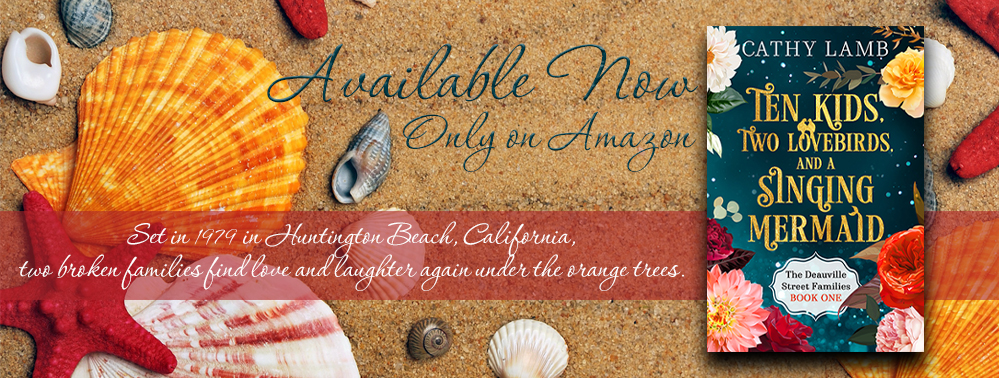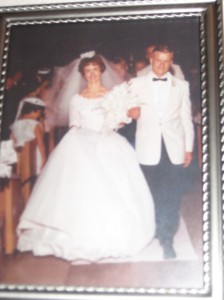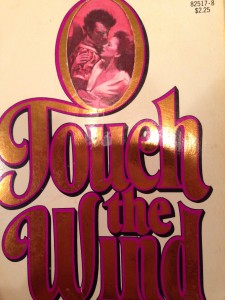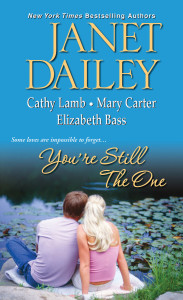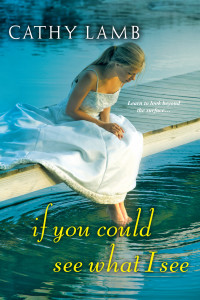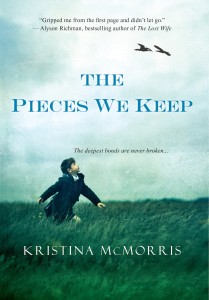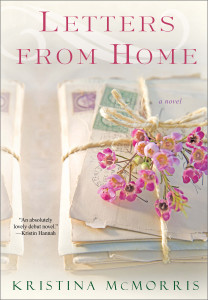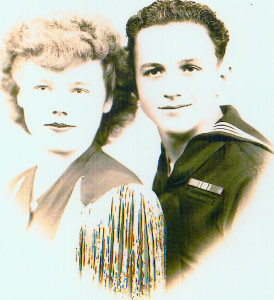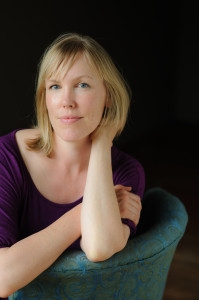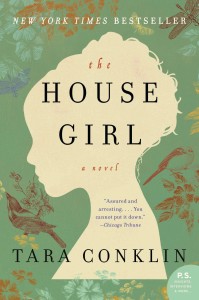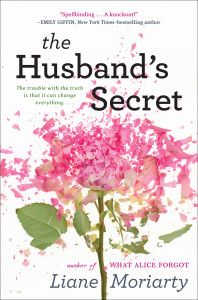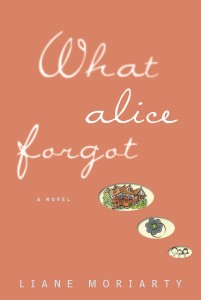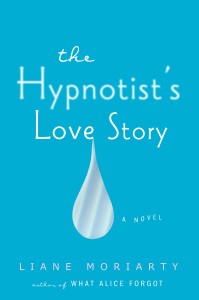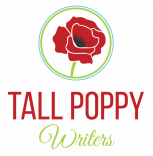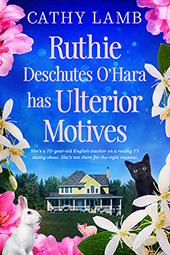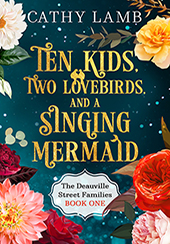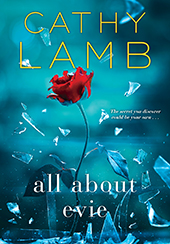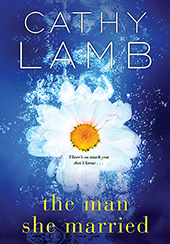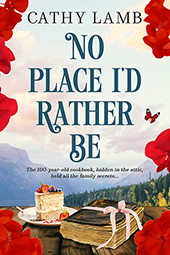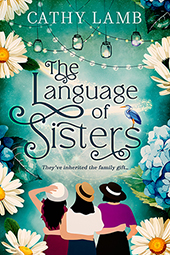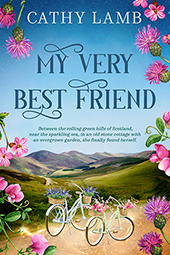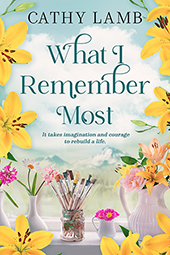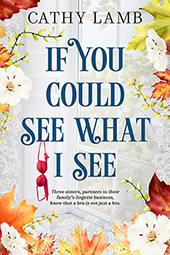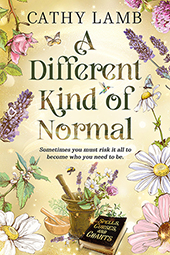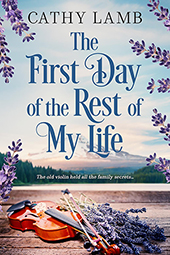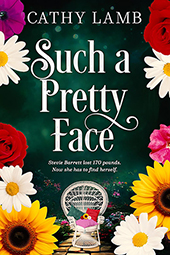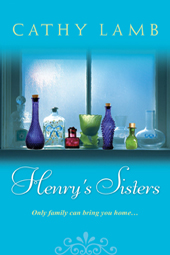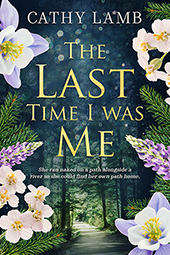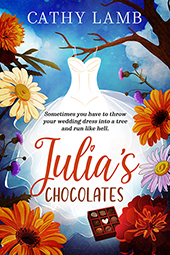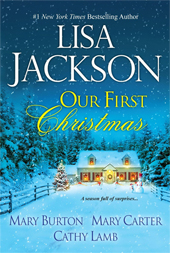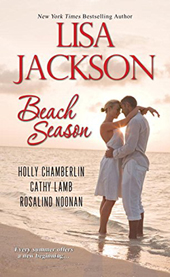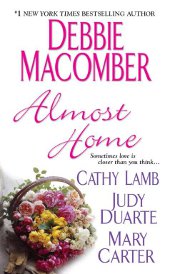- November 14
- Let’s play: BUILD A SPOUSE.
-
In many of my books I have a male stud love interest. When I’m writing the character, I simply create a man who I’d want to marry. (If, say, Innocent Husband ran off with a young blonde bomb.) Which brings me to my first question. What five characteristics and qualities would you insist on in a spouse if you were to marry again? Or, for the first time? My second question: What are the “extra credit” qualities you would want? (I’ll leave that open to interpretation). Be real honest. And you can break the rules here any which way you want.
 November 14 at 2:21pm · Unlike · 1
November 14 at 2:21pm · Unlike · 1
Tina Hengen He must be caring, funny, hard working (but not a workaholic), honest, and loveable! And if he were somewhat sensitive, can cook, clean up after himself, and somewhat spontaneous that would be a nice bonus!
November 14 at 2:22pm · Unlike · 2
Shannon Heinz-Potenzo In order 1. Humor, 2. Passion, 3. He has to be nice to waiters and waitresses. I know this sounds weird but you can tell a lot about a person if they are rude to people just trying to wait on them 4. Honesty 5. Good work ethic…..extra credit; nice legs, butt and piercing blue eyes!
November 14 at 2:23pm via mobile · Unlike · 3
Erin Maureen Mast 1. hard worker 2.loving 3. kind 4. funny 5. good in bed”lol Lets face it material things are great but without someone that makes ya laugh and feel loved with a dash of romantic in him”might as well have a roommate or a dog…..
November 14 at 2:24pm · Unlike · 1
Dana Velvet Pixie Bokelman Sense of humor is a MUST.. He better accept that my children will ALWAYS be my babies… treat me like the special creation I am! And yes looks matter but that is to each his own … He MUST have an income .. and Ill break the rules ..sex is fun I want it in my life and he should accomadate
November 14 at 2:26pm · Edited · Unlike · 1
 Sheila Hagar OK, let’s play this game! Because five was EXACTLY the length of my most recent “spouse” list! In no order of importance: Shared faith, relational, job, sense of humor, cares about his health. It does not hurt at all that mine arrived with an awesome hiney and dimples.
Sheila Hagar OK, let’s play this game! Because five was EXACTLY the length of my most recent “spouse” list! In no order of importance: Shared faith, relational, job, sense of humor, cares about his health. It does not hurt at all that mine arrived with an awesome hiney and dimples.
November 14 at 2:25pm · Unlike · 1
Sheila Hagar And by awesome, I mean the kind that makes you reach under the covers and squeeze.
November 14 at 2:26pm · Unlike · 1
Julia Spann-Plummer 2) Family oriented 3) Successful 4) Genuinely kind 5) great sense of humor. Now, for the extras 1) SEXY (aka well groomed, smells good, etc)., 2) Affectionate (touches my heiny when he walks by me, dances with me in the kitchen while dinner is cooking) 3) Thinks I’m beautiful and tells me so often 4) He’s gainfully employed with a retirement plan so we can travel 5) Sexually gifted
November 14 at 2:27pm · Unlike · 3
Sheila Hagar OK, I’m going back to work now.
November 14 at 2:27pm · Unlike · 1
Sheila Hagar DAMMIT LAMB, now I have to go home.
November 14 at 2:27pm · Unlike · 3
Cathy Lamb Well, sheesh, Sheila Hagar I think the world is a better place knowing that your husband has nice buttocks.
November 14 at 2:28pm · Unlike · 3
Sheila Hagar sorry…can’t talk…stuffing work into messenger bag…where is my phone…wonder if I can beat the kids home…
November 14 at 2:29pm · Unlike · 1
 Laura Fenn 1) intelligent 2) clean cut 3) stable 4) non smoker 5) shares my sense of humor.
Laura Fenn 1) intelligent 2) clean cut 3) stable 4) non smoker 5) shares my sense of humor.
November 14 at 2:29pm · Unlike · 1
Julia Spann-Plummer I forgot to say intelligent which is funny because it’s my #1 requirement. Must be intelligent!
November 14 at 2:31pm · Unlike · 1
Erin Maureen Mast oh yeh can they be non-farters”’
November 14 at 2:31pm · Unlike · 1
Sheila Hagar Sorry, Erin Maureen Mast, that goes under “fantasy.”
November 14 at 2:31pm · Unlike · 1
Erin Maureen Mast can a girl dream”common
November 14 at 2:32pm · Unlike · 1
Lisa Ferber For me, looking at someone’s hands reveal about as much as you can see in their eyes. It’s not a palm reading thing. It’s about seeing the strength, caring and gentleness that’s there. It may not make sense, but when I met my husband, his hands matched his eyes.
And please forgive my cheesiness!
November 14 at 2:37pm via mobile · Unlike · 1
Dana Kennedy Criger Sensitive. Trustworthy. Funny. Confident but not cocky. Well mannered. I always joked that my next husband would have to be an orphan since I had so much drama with his family.
November 14 at 2:37pm · Unlike · 1
Sheila Hagar You know, you cannot discount good kissing, either.
November 14 at 2:38pm · Unlike · 3
 Felicia Sondrol Darwen We are a natural fit, a team whether cooking in the kitchen, playing a game, parenting a child or fighting in a war together Apocalyptic action movie-style. He hears me, not just listens and is sincerely interested in knowing me and all my broken pieces. He sings me lullabies, sings well, gives excellent massages, loves food, loves wine, tall, can spoon with me perfectly, deep voice, dreamy eyes, sings, has the heart of a lion and gets on his knees to tell me he loves me, pushes me down when I try to kiss him on my tip toes, he runs hot and I cold … more than five and definitely my current love interest … I’ll tell you more if you PM me or call me … he’s perfectly written for one of your books.
Felicia Sondrol Darwen We are a natural fit, a team whether cooking in the kitchen, playing a game, parenting a child or fighting in a war together Apocalyptic action movie-style. He hears me, not just listens and is sincerely interested in knowing me and all my broken pieces. He sings me lullabies, sings well, gives excellent massages, loves food, loves wine, tall, can spoon with me perfectly, deep voice, dreamy eyes, sings, has the heart of a lion and gets on his knees to tell me he loves me, pushes me down when I try to kiss him on my tip toes, he runs hot and I cold … more than five and definitely my current love interest … I’ll tell you more if you PM me or call me … he’s perfectly written for one of your books.
November 14 at 2:38pm · Unlike · 2
Marie Pier Perreault Funny, attentionate, caring, calm, smart.
As for the rest…tall, bit of a teddy bear, green eyes and an impish smile, and has a bit of a nine year-old on a sugar rush attitude towards life.
November 14 at 2:39pm · Unlike · 1
Sheila Hagar Also, ask yourself this ladies: Will he change the toilet paper roll?
November 14 at 2:39pm · Unlike · 4
Sarah Austad Sense of humor….laughs at my jokes, love of learning new things, helps around the house, good listener, and loves me unconditionally. I believe I just described my husband of thirty one years…almost thirty two!
November 14 at 2:49pm via mobile · Unlike · 1
Joyce Ferrell RICH, CONSIDERATE , GOOD KISSER, DARK HAIR BLUE EYES TALL WELL BUILT FAITHFUL AND AFFECTIONATE, LOVES CATS AD DOGS AND HORSES , WANTS TO LIVE ON OCRACOKE ISLAND.NC, GENEROUS,GOD FEARING
November 14 at 2:58pm · Unlike · 1
Maria Ulery Trusting, considerate, funny, affectionate, and able to do construction type things like hang drywall etc. Extras would be wealthy and tend to my every need lol
November 14 at 3:05pm via mobile · Unlike · 2
Bettyann Waller sense of humour, twinkling eyes, likes to kiss and cuddle, “good hands” lol…
November 14 at 3:08pm · Unlike · 1
 Jill Castro Mandatory: Sense of humor, patient, working toward goals, passionate about their work (but knows when to stop working), loves food, loves travel, loves his family, can be left alone with my friends and family and hold his own, manly hands, and knows when to take charge and when not to. One of the things that I like most about my marriage is that our career interests are polar opposites, but we both think the other one is a rockstar at what they do.
Jill Castro Mandatory: Sense of humor, patient, working toward goals, passionate about their work (but knows when to stop working), loves food, loves travel, loves his family, can be left alone with my friends and family and hold his own, manly hands, and knows when to take charge and when not to. One of the things that I like most about my marriage is that our career interests are polar opposites, but we both think the other one is a rockstar at what they do.
November 14 at 3:13pm · Unlike · 4
Debbie Rhodes Trust-worthy. Faith-filled. Sense of humor. Protective. Must love kids and dogs. Not hairy. Calm. Own a beach house. Would need all of the above plus free-flowing cash for me to get married again if I ever become a widow.
November 14 at 3:13pm via mobile · Unlike · 2
Lisa Sizemore Poss First of all, I’d like to say I have an awesome husband, and I love him. But….here goes. He would have to be tall, handsome, and very very rich. He would love to travel and clean house. He would be CRAZY about me, of course and enjoy ironing.
November 14 at 3:19pm · Unlike · 1
Rose Park Picked DH after intuiting he would be the best dad ever. Thinking back, that would be #2 on my list. #1? A solid belief that his job is to be Jesus in the home. The servant Jesus.
November 14 at 3:23pm via mobile · Unlike · 1
Karen Price A man who would drive to the theatre on a Harley Davidson . In other words, cultured, but tough. Handsome, wealthy, and not afraid of anything, esp hard work. Someone who can change a diaper, fix a car, cook a meal, ride a horse, and discuss literature. Obviously, I live in a dream world lol
November 14 at 3:24pm · Unlike · 5
Sherry Gorman I would want somebody who worshipped me. I know, that’s egocentric and shallow, but you asked
November 14 at 3:30pm · Unlike · 3
Billie Ann Koerner I love all the qualities of Mr.. Darcy from Pride and Prejudice!
November 14 at 3:31pm · Unlike · 1
Terrinkelly Ford My husband had all those qualities Plus…I’m so blessed.20+ years married, and he still takes my breath away.week knees is a plus..
November 14 at 3:31pm via mobile · Unlike · 3
- Sophie Moss Qualities: Honest, Loyal, Hard-working, Compassionate, Kind. Extras: affectionate, great sense of humor, great storyteller, great cook, great listener, loves dogs, loves to be outside.
November 14 at 4:09pm · Unlike · 2
 Cathy Lamb What awesome comments!! First, I’d want someone who loved me dearly and could put up with my need to be alone to write and think and my general crankiness. I think that a relationship cannot survive happily without faithfulness. I do not want to go to bed at night wondering if my man is tumbling in someone else’s sheets, so that’s my second one. I need kindness and intelligence and honesty. That would be five. I also think that if both people are not completely dedicated to making the marriage work, it won’t. There’s too much from life – not even counting our own faults as individuals and couples – but there’s too much that life throws at us that is hard and challenging to stay together unless both people say, “Come hell or high water we’re sticking this out.” And, sometimes I think couples shouldn’t stick it out. They are not good together or he is a major asshole. Hot, good looking, and into traveling and reading and laughing and chatting would be lovely, too.
Cathy Lamb What awesome comments!! First, I’d want someone who loved me dearly and could put up with my need to be alone to write and think and my general crankiness. I think that a relationship cannot survive happily without faithfulness. I do not want to go to bed at night wondering if my man is tumbling in someone else’s sheets, so that’s my second one. I need kindness and intelligence and honesty. That would be five. I also think that if both people are not completely dedicated to making the marriage work, it won’t. There’s too much from life – not even counting our own faults as individuals and couples – but there’s too much that life throws at us that is hard and challenging to stay together unless both people say, “Come hell or high water we’re sticking this out.” And, sometimes I think couples shouldn’t stick it out. They are not good together or he is a major asshole. Hot, good looking, and into traveling and reading and laughing and chatting would be lovely, too.
November 14 at 4:25pm · Like · 11
Tara White Robinett Over 6 ft, Christian, loves my kids and my parents, likes me, good cook. Bonus stuff, great lover but not obsessed with sex, likes to read, good at building or fixing stuff, likes the same TV shows, neat with his stuff, likes to travel, likes to talk about stuff.
November 14 at 4:26pm via mobile · Unlike · 3
Peggy Aube Strout Funny, honest, great hands( that’s a personal thing for me, I love a man with clean, manly hands, lol) hard working, one who treats His Mom like a queen…..(not a mamas boy) a man who likes to travel, loves kids and animals….kind, considerate, thinks of others, a man that can take me in His arms and hug me like no other…..a man who has your back….always….handsome and rugged…….lol I am living in a book……
November 14 at 4:27pm via mobile · Unlike · 3
Sandra Jean Lawrence Gosh, I can’t improve on any of these comments….but I’ll say I wouldn’t want a man who thinks he’s the be-all-end-all of the relationship.
November 14 at 4:27pm · Unlike · 3
Janet Castillo Must haves: honest but not too honest, funny, protective, caring. Love movies, good listener, loves children
Extras: romantic, tall,
November 14 at 4:27pm via mobile · Unlike · 2
Simi Zuckerman Kind and compassionate to all people and animals. Smart and savvy. Humble. A good sense of humor. A gentleman.
Extras: nice looking but not like a model. Comfortable financially. Family man. Generous. Romantic. Positive outlook. Supportive. Fun.
November 14 at 4:31pm via mobile · Unlike · 1
Simi Zuckerman Oh, yes, can fix cars and things around the house, is computer savvy, and likes to clean and cook.
November 14 at 4:33pm via mobile · Unlike · 1
Logan Lazo Handsome, great sense of humor, is a gentleman without realizing it. Has at least 2 older sisters which is why he can respect all women. Dresses well and manages his hair if its long enough to manage. Healthy but not a health freak. Beautiful hands and mouth. Teeth are a big one – i love ANYONE with a great smile!
November 14 at 4:35pm · Unlike · 1
Anne Marie Anderson I did it right the second time. My husband is incredibly funny, always honest with me (but gentle on the not-so-fun-to-hear stuff). He’s a great father, isn’t afraid to cry when his emotions get really strong. Those are probably my very favorite character traits.
November 14 at 4:36pm · Unlike · 1
Vanessa Mitchell Someone who would put up with my crazy life, 3 kids, loves to cuddle, is very affectionate, loving, trustworthy, honest and likes sex. Yes I said sex.
November 14 at 4:46pm via mobile · Unlike · 1
Cheryl Cole-Beisel Affectionate,funny,helpful,same taste in music, and handsome!
November 14 at 4:56pm · Unlike · 1
Katie Wayt Honest and kind, makes me laugh, can deal with my NKOTB obsession and likes to cuddle.
November 14 at 4:59pm via mobile · Unlike · 1
Amy Rogers Honest, loyal, cowboy type (real cowboy, not the ones that play at it on weekends), gets my need for some autonomy, doesn’t expect me to be his mother or maid, educated, good conversationalist, can debate with me and understand when I’m playing devils advocate, can hold a job. That’s a good start.
November 14 at 5:09pm via mobile · Unlike · 1
Anne Hovey Brandolini Sense of humor, intelligent, good with kids, laid back, handy. For extra credit: good looking.
November 14 at 5:09pm · Unlike · 2
 Threasa Sears Lewis My perfect guy would be honest, smart, funny, tall, with sexy eyes and a smile that will melt your heart. A great add on would be someone who can dance with me on and off the dance floor. Be that lil old couple who know each others next move before they even make it.
Threasa Sears Lewis My perfect guy would be honest, smart, funny, tall, with sexy eyes and a smile that will melt your heart. A great add on would be someone who can dance with me on and off the dance floor. Be that lil old couple who know each others next move before they even make it.
November 14 at 5:17pm · Unlike · 1
Connie Binion Honest , smart,cares about family,faithful ,respects his wife.
November 14 at 5:44pm · Edited · Unlike · 2
Cynthia Dix He gives me space when I need it and hugs when I need them–and doesn’t think he’s less of a man for NOT being able to fix the unfixable! That was on my list for hubby #2–and I got it
November 14 at 5:46pm · Unlike · 1
Barb Dowdell MacKenzie Mr. Perfect would be (FAITHFUL not a trait but without it, it is a dealbreaker!) funny, easy going, genuine, nice to his mom/kids and respectful. Bonus qualities are hot for sex, good looking and financially independent. Funny is most important as good looks fade, sex might stop working after a certain age and money does not make you happy.
November 14 at 6:51pm · Edited · Unlike · 1
Frances Jurvakainen Williams a good sense of humor, genuine interest in people, clean cut, nice smile, intelligent, honest, loves kids and animals, hardworking, likes to travel, is interested in living life, not just watching it pass by, has flashes of orneriness like Mel Gibson when he was young and sane, empathetic, loves music, loves a good conversation with an open mind to different opinions, has a strong core of faith, is loving and affectionate. he makes you feel good about yourself even at your worst. All these things make him a sexy, handsome man.
November 14 at 6:01pm via mobile · Unlike · 1
Meaghan Pang Without reading everyone else’s posts first, here’s mine with probably some duplicates #1: Trustworthy, loving, responsible, communicative, thoughtful/unselfish (like girlfriends are with each other), amazing father to our children, not lazy, holds same morals. #2: good looking, strong, makes good money (makes things easier), wants to travel and drink wine with me
November 14 at 6:50pm via mobile · Unlike · 1
Cathie Hedrick Armstrong 5 Qualities: honesty, loyalty, love of family, sensitive (not too manly to cry) and protective of those he loves.
Bonus qualities: coal black hair, razor stubble, bright blue eyes, sense of humor, strong arms, tall, confident but not arrogant.
November 14 at 7:09pm via mobile · Unlike · 1
Joey Paquette I was the girl that had crushes on Hoss, Grizzly Adams, Dan Connor, the big, beefy, kindhearted teddy bears. Strong warm hands, deeper voice, good conversationalist, tender strongman.
November 14 at 7:18pm via mobile · Unlike · 2
Angela Lenamond Sharp wit, strong but patient and understanding. Not a doormat. Can truly “see” her, flaws and all, but still loves & gets her.
November 14 at 7:54pm via mobile · Unlike · 2
Anne Palmer Martin He needs a good sense of humor. Must love animals and kids. He can put up with the insanity that is my family. He loves me at my best but can handle me at my worst.
November 14 at 9:02pm via mobile · Unlike · 1
Vivian Gialanella-Sauter Oh boy…I have thoroughly enjoyed reading all these comments!
November 14 at 9:33pm · Unlike · 1
 Gretchen Ross I don’t think that a dumb man would ever be attracted to me so I will take intelligence as a given.
Gretchen Ross I don’t think that a dumb man would ever be attracted to me so I will take intelligence as a given.
I think that a sense of justice and right and wrong that match my own is most important to me. Shared morals and values. I also want him to really dig me and get me for who I am.
Good in bed too.
November 14 at 9:57pm · Unlike · 2
Carissa Winter Great sense of humor with a great laugh, gets along with my family, love for outdoors, wildlife and dogs, honest and hardworking (strong work ethic), loves to read and travel
November 14 at 10:24pm via mobile · Unlike · 1
Carissa Winter Oh and loves to cook!
November 14 at 10:24pm via mobile · Unlike · 1
Mandy Boelter Lange I would say great sense of humor and quick to laugh, patient, forgiving, strong (physically and emotionally and handsome, and a strong Christian. Hmmm. Those are all the qualities I love in my husband of 11 1/2 years. I am blessed!!!!!
November 14 at 10:56pm · Unlike · 2
Diane Russom Harrison Sense of humor, integrity, intelligence, generous in all ways, emotionally stable…this are all non-negotiable. Extra credit: dark hair and eyes, curious, kind, loves animals, loves to travel.
November 14 at 11:29pm · Unlike · 1
Mandy Boelter Lange My extra credit: highly intelligent, animal lover, good dancer, and will adore me in all ways!!!
November 14 at 11:37pm · Unlike · 1
Maryellen Sparks Pallow Qualities of my perfect husband? Stable, sense of humor, intelligent, kind-hearted and a really good cook (I get hungry). Extras~~must love cats, put up with my shopping, has to exercise and is adventurous between the sheets. (Blushing!)
Yesterday at 3:03am · Unlike · 1
Sebastian Cole Um.. am I allowed to read these??
Yesterday at 3:52am · Unlike · 3
Michelle Traver Honestly, Cathy, I’d marry any of your male heroes. Generally, you nail it: BIG, muscular, easygoing, accepting, smart, funny, capable, confident, intelligent, loves babies and animals, PROTECTIVE but not jealous/distrustful, has some kind of job they either enjoy or make a decent living at, is capable of talking about or at least showing how they feel, willing to let their mate exist as an adult individual because I didn’t Venus out of a clam shell yesterday, good in bed (or at least willing to learn), but the most important thing is they have to have that “hook” that pulls you in–whether it’s a gorgeous set of eyes, a beautiful smile, or some other attribute that just gets your sex drive going.
Yesterday at 4:08am · Edited · Unlike · 1
Kelly J. Phillips (needs):Honest, faithful,open emotionally ,same faith,humorous (wants) supportive, financially stable,loves kids and animals. Oh and…Understands as much as I try,I’ll never b a size 6… ever again! Cathy Lamb I love your “Put some thought in it” questions.
Yesterday at 4:21am · Unlike · 1
Peggy Hornyak Dingess I think the flower would be a beautiful book cover Cathy!
Yesterday at 4:38am · Unlike · 1
Loretta Palmer The five characteristics I would want in a new husband are a man that is trust worthy. A passionate man is also important. I am not just talking about the bedroom here (though that would be great!). I mean that he should be passionate about living, his work or helping people. Stability is paramount; both financial and emotional. Nothing sexier than a man who is self aware. Finally my perfect mate would be respectful of me and my needs, as well as himself and others. He wouldn’t judge people harshly or be condescending. He could appreciate people for who they are and understanding that they are on their own path of discovery. Bonus traits — handy man, good with kids and animals, loves music, loves to read, physically fit, knows his way around a kitchen and would take me dancing. Also, he has to be a “Man’s man”; the strong silent type. Does a guy like this even exist?
Yesterday at 11:40am · Edited · Unlike · 1
Katy Shandil Supportive, loving, strong (emotionally, extra credit for physically strong), family values important and a good role model. Someone that is a doer. Doesn’t have to be asked to mow the lawn or fix things. A great communicator? Is that possible in the male species? Extra credit for a wonderful smile and sense of humor …….
Yesterday at 8:01am via mobile · Unlike · 1
Karen Carman family first. Good with finances. independant. I make him laugh. He makes me laugh.
Yesterday at 11:03am · Unlike · 1
Karen Carman lets me be me..and loves me just the way I am…
Yesterday at 11:08am · Unlike · 1
Karen Carman extra credit…can have a conversation with anyone. tidy. organized. proud of himself. cooks !
Yesterday at 11:10am · Unlike · 1
Cathy Lamb Sebastian Cole. Have at it. What do YOU think? What are your top five for a spouse? What are your extra credit qualities?
Yesterday at 11:25am · Like · 1
Cathy Lamb I don’t know if men like this exist. Maybe that’s why romance books are so popular….
Yesterday at 11:25am · Like
Cathy Lamb Peggy Hornyak Dingess Thank you! I loved that flower. I have a small obsession with flowers…
Yesterday at 11:26am · Like
Cathy Lamb I love all the thoughtful responses here. Men, relationships, so difficult and complicated sometimes. I’ve been married over twenty years and there is still much to work out. Some days I look at him and think, “What? You’re STILL here?” And other days we just laugh our way through…
Yesterday at 11:27am · Like · 1
Jacqueline Spenger A job. He needs a job. And kind, loving, attentive. And he can’t still carry a torch for his ex. And no porn.
Yesterday at 11:37am · Edited · Unlike · 2
Kitti McConnell I haven’t yet met Mr Right but from the good marriages I’ve seen, he needs to be 100% committed and full of love. Requirements for his spouse are the same.
Yesterday at 11:52am · Unlike · 1
Rosa Lee James Jude He lets me be me…and I am sure that is difficult at times…and he loves his mother, my mother and all of my friends…another task that isn’t always easy. He is very good to the people in my life that are important to me.
Yesterday at 11:54am · Unlike · 2
Kristie Taylor Sense of humor, gainful employment, morally and ethically compatible, loves me for me, and has most of his own teeth!
Yesterday at 1:07pm via mobile · Unlike · 1
Barb Dowdell MacKenzie I have a friend who tells me that her husband takes hold of her face and kisses her fully and deeply every day when he leaves the house…..
Yesterday at 2:49pm · Unlike · 1
Kim Sonju-Zrust I got the opportunity to marry again – here’s what my priorities were: 1. Love my kids. 2. Love me. 3. Be independent 4. Be trustworthy. 5. Be fun. And for EXTRA CREDIT???? Doesn’t need me to say “Yes, it is so yummy!!!!” when he makes pizza…See More
Yesterday at 3:28pm · Edited · Unlike · 1
Sebastian Cole I can’t compete with these perfect men! They’re all making me look bad, ha.
Let’s see, here are MY good qualities, leaving out the bad, of course, ha:…See More
Yesterday at 3:31pm · Edited · Unlike · 2
Jacqueline Spenger I would also say that a good quality would be that he isn’t a felon. Or uses drugs. I might be getting too realistic though……
5 hours ago · Edited · Like

 Julia’s Chocolates, published in 2007, was the first novel I ever sold. I cannot tell you how thrilled I was when my agent called and said he’d sold it to Kensington Books in NYC.
Julia’s Chocolates, published in 2007, was the first novel I ever sold. I cannot tell you how thrilled I was when my agent called and said he’d sold it to Kensington Books in NYC. Bette Jean was the daughter of a Texas southern belle who had lost both parents (one dead, one who ran off) by the time she was four years old, and a poor farmer’s son with an eighth grade education from Arkansas who went west to Los Angeles to build homes.
Bette Jean was the daughter of a Texas southern belle who had lost both parents (one dead, one who ran off) by the time she was four years old, and a poor farmer’s son with an eighth grade education from Arkansas who went west to Los Angeles to build homes.

